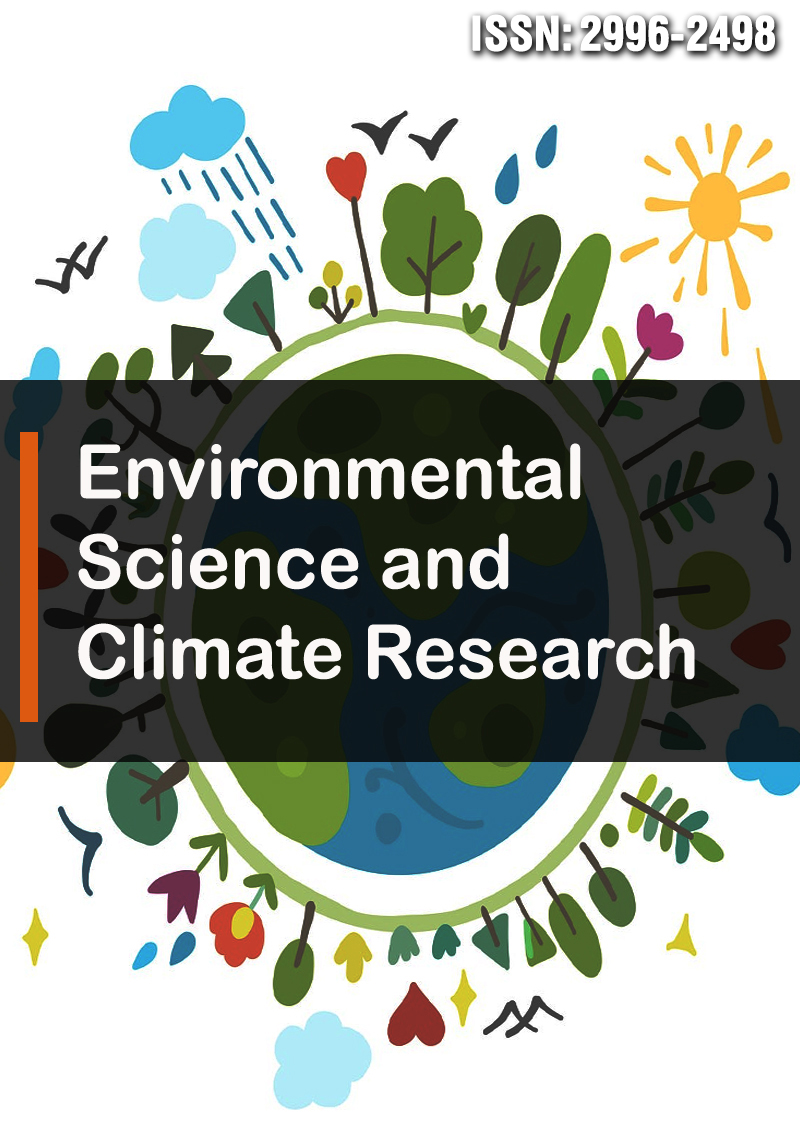Author Guidelines
Journal DOI: 10.33140/ESCR
Environmental Science and Climate Research is an international peer-reviewed journal for those involved in teaching or practicing in the fields of environmental science and climate research as well as organizational development and education connected to these areas of interest.
Plagiarism: Manuscript duplicity is a crime. Thus, plagiarism should be completely avoided. Figures and tables extracted from any sources are considered malpractice. The data extracted must be cited properly and the journal does not encourage the exact reproduction of any content.
Article Publication Charges for the Environmental Science and Climate Research are $2019 payable on acceptance of each paper. However, a fee waiver may be possible in some circumstances. Please contact the managing editor for more information or a fee waiver.
We publish all types of original articles, reviews, mini-reviews, case reports, abstracts, editorials, letters to the editor, commentaries, rapid communications and perspectives, case-in images, clinical images, and conference proceedings.
In general, the manuscripts are classified into the following groups based on the criteria noted below. The author(s) are encouraged to request a particular classification upon submitting (please include this in the cover letter); however, the editor and the associate editor retain the right to classify the manuscript as they see fit, and it should be understood by the authors that this process is subjective to some degree. The chosen classification will appear in the printed manuscript above the manuscript title.
Note: Authors must prepare and submit a cover letter with their manuscript.
We extend a warm invitation to researchers and authors to be part of the Environmental Science and Climate Research. Our journal is committed to upholding the highest standards of academic rigor and ethical conduct, ensuring that each published article makes a meaningful contribution to the global community. To facilitate this endeavor, we have outlined comprehensive guidelines for manuscript submission:
Types of Articles: Our journal welcomes various types of submissions, including original research articles, literature reviews, systematic reviews, case reports, and clinical studies. Each contribution should offer valuable insights that contribute to the advancement of knowledge.
Peer Review Process: All submitted manuscripts undergo a meticulous peer-review process, where esteemed experts in the relevant fields rigorously evaluate the quality, significance, and validity of the research.
Open Access Philosophy: We embrace the principles of open access, making research findings accessible to a worldwide audience without financial barriers, thereby fostering greater collaboration and knowledge exchange.
Keywords for Discoverability: Authors are encouraged to select keywords that accurately reflect the essence of their research. While choosing keywords, strive for specificity to enhance discoverability and avoid repetition of commonly used terms.
Manuscript Formatting: Manuscripts should adhere to our provided template, ensuring proper organization, formatting, citations, and references. This streamlines the review process and ensures uniformity across published articles.
Ethical Considerations: Authors must adhere to ethical guidelines, including proper citation of sources, accurate representation of data, and disclosure of potential conflicts of interest.
By adhering to these guidelines, authors contribute to the vibrancy and credibility of our journal's scholarly discourse. We eagerly anticipate the submission of innovative research that furthers the frontiers of clinical, medical, and diagnostic understanding.
Manuscript Formatting Guidelines
Manuscript Title: The title should be limited to 25 words or less and should not contain abbreviations. The title should be a brief phrase describing the contents of the paper.
Author Information: Complete names and affiliation of all authors, including contact details of corresponding author (Telephone, Fax, and E-mail address).
Abstract: The abstract should be informative and completely self-explanatory, should briefly present the topic, state the scope of the experiments, indicate significant data, and point out major findings and conclusions. The abstract should summarize the manuscript content in 300 words or less. Standard nomenclature should be used and abbreviations should be avoided. The preferable format should accommodate a description of the study background, methods, results, and conclusion. Following the abstract, a list of keywords (3-10) and abbreviations should be included.
Text Introduction: The introduction should set the tone of the paper by providing a clear statement of the study, the relevant literature on the study subject, and the proposed approach or solution. The introduction should be general enough to attract a reader’s attention from a broad range of scientific disciplines.
Materials and Methods: This section should provide a complete overview of the design of the study. Detailed descriptions of materials or participants, comparisons, interventions, and types of analysis should be mentioned. However, only new procedures should be described in detail; previously published procedures should be cited and important modifications of published procedures should be mentioned briefly. Capitalize trade names and include the manufacturer’s name and address.
Results: The results section should provide complete details of the experiment that are required to support the conclusion of the study. The results should be written in the past tense when describing findings in the authors’ experiments. Previously published findings should be written in the present tense. Results and discussion may be combined or could be maintained in separate sections. Speculation and detailed interpretation of data should not be included in the results but should be put into the discussion section.
Acknowledgement: This section includes acknowledgement of people, grant details, funds, etc.
References: Only published or accepted manuscripts should be included in the reference list. Meetings abstracts, conference talks, or papers that have been submitted but not yet accepted should not be cited. All personal communications should be supported by a letter from the relevant authors. Authors are requested to provide at least one online link for each reference (preferably PubMed).
Copyright submission of a manuscript implies that the work described has not been published before (except in the form of an abstract or as part of a published lecture, or thesis) and that it is not under consideration for publication elsewhere.
All works published in the Environmental Science and Climate Research are under the terms of the Creative Commons Attribution License. This permits anyone to copy, distribute, transmit, and adapt the work provided the original work and sources are appropriately cited.



